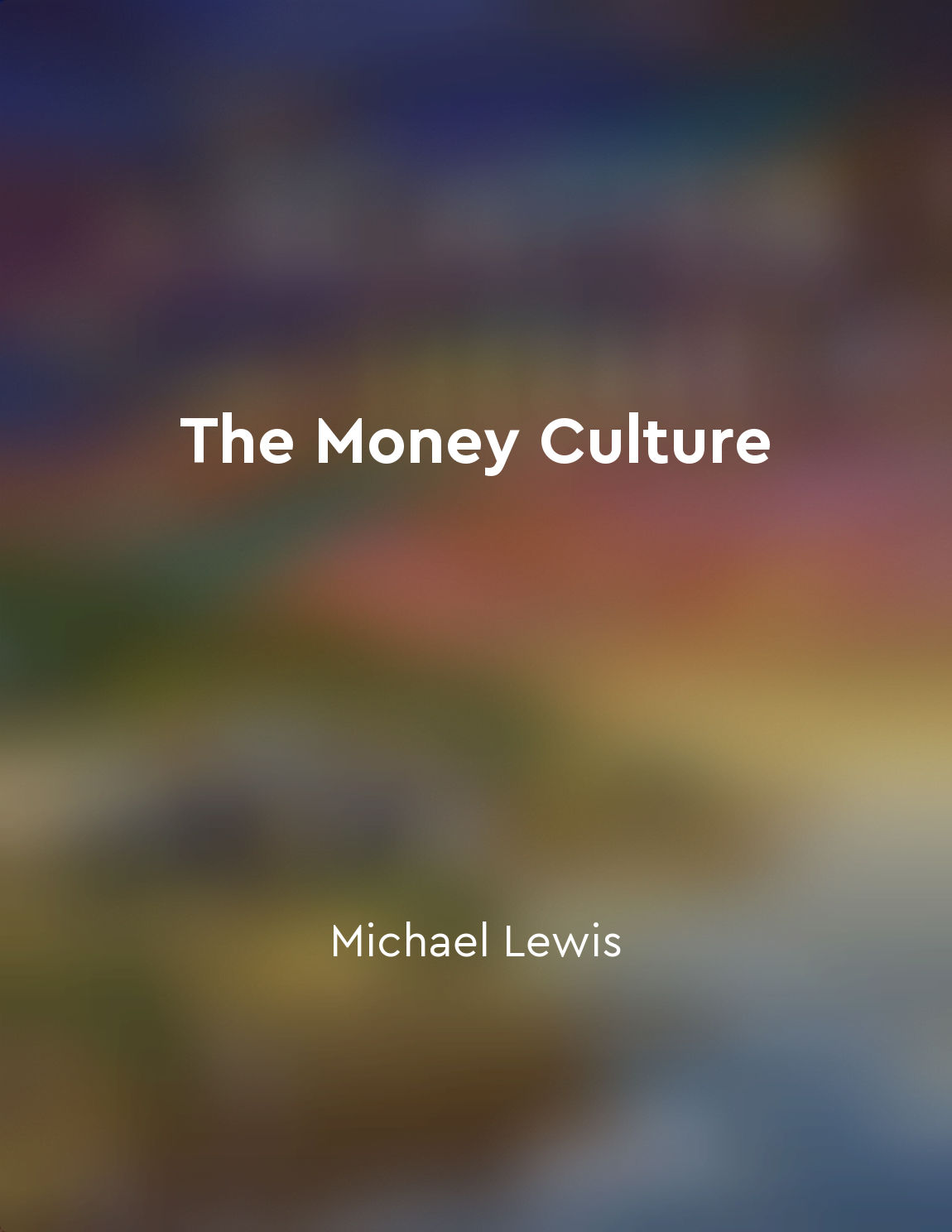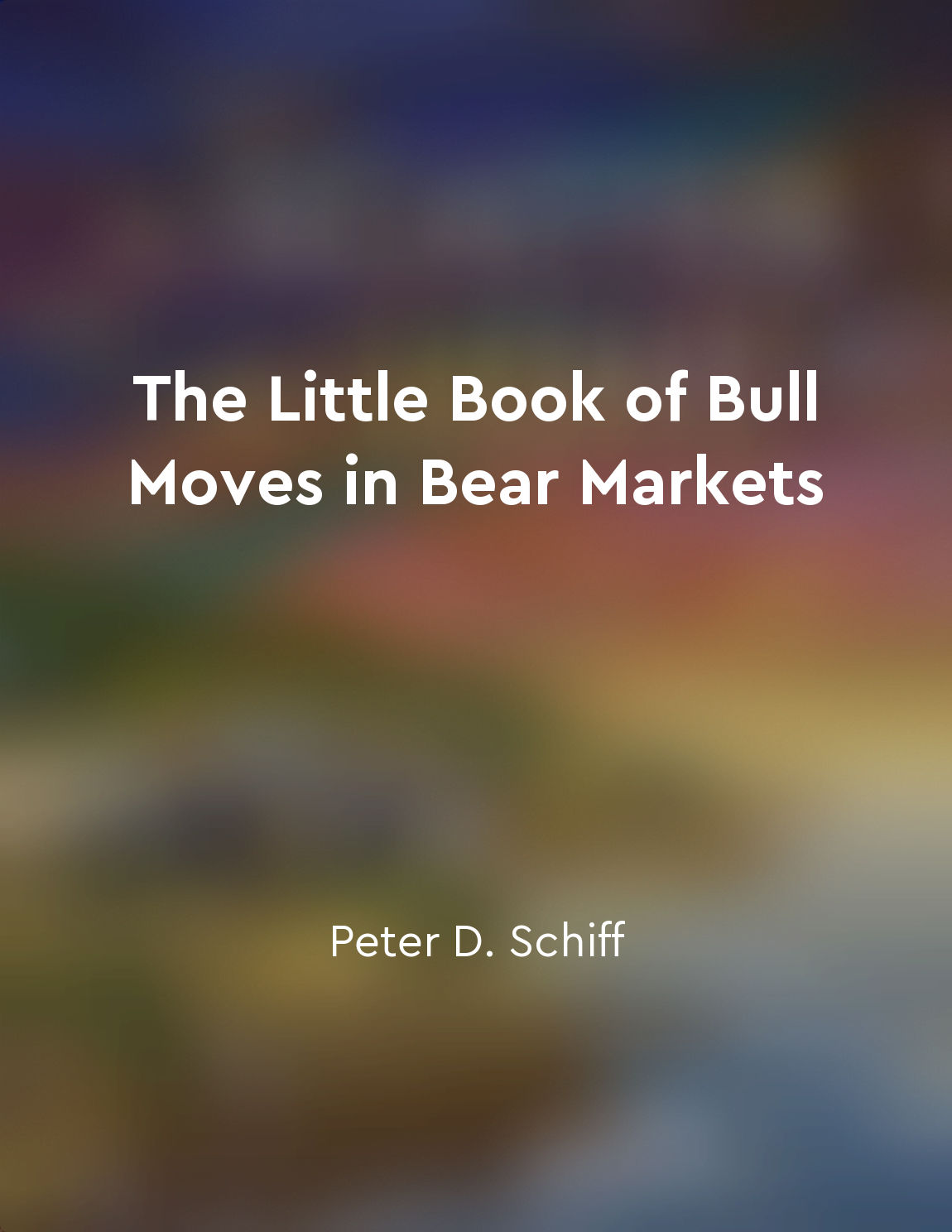Market crashes offer opportunities for learning and adaptation from "summary" of Why Stock Markets Crash by Didier Sornette
Market crashes should not be viewed solely as negative events with disastrous consequences. Instead, they can also be seen as opportunities for learning and adaptation. When a market crash occurs, it presents a chance for investors and policymakers to examine what went wrong and why the crash happened. By studying the causes and consequences of market crashes, we can gain valuable insights into how financial markets operate and how they can be improved to prevent future crashes. One of the key benefits of market crashes is that they force us to reevaluate our assumptions and beliefs about the stock market. Crashes often reveal flaws in our understanding of market dynamics and highlight the need for a more nuanced and sophisticated approach to investing. By challenging our existing beliefs and theories, market crashes can help us develop a more robust and resilient investment strategy that is better equipped to withstand future market turbulence. Furthermore, market crashes can also serve as a wake-up call for policymakers and regulators. Crashes are often the result of systemic failures or regulatory gaps that allow excessive risk-taking or speculative behavior to go unchecked. By analyzing the root causes of market crashes, policymakers can identify weaknesses in the financial system and implement reforms to prevent similar crashes in the future. This process of learning from past mistakes and adapting our regulatory framework can help create a more stable and secure financial system for all stakeholders.- While market crashes are undoubtedly painful and disruptive events, they also provide valuable opportunities for learning and adaptation. By studying the causes and consequences of market crashes, we can gain insights into how financial markets operate and how they can be improved. Market crashes challenge our assumptions and beliefs, prompting us to develop a more sophisticated investment strategy. Additionally, crashes can serve as a wake-up call for policymakers, prompting them to identify and address weaknesses in the financial system. Ultimately, market crashes can be a catalyst for positive change and innovation in the financial industry.
Similar Posts
Government intervention
Government intervention was a critical component in the response to the financial crisis of 2008. As the crisis unfolded, gover...
Avoid following the crowd
When it comes to investing, it's easy to get caught up in following the crowd. People tend to look at what others are doing and...

Steve Eisman's skepticism proved to be wellfounded
In the years leading up to the financial crisis of 2008, Steve Eisman had grown increasingly skeptical of the stability of the ...
Plan for unexpected expenses
Life is full of surprises. Some are pleasant, like winning the lottery or getting a raise at work. Others are not so pleasant, ...
Seek professional advice when needed, but be wary of conflicts of interest
When it comes to managing your investments, seeking professional advice can be crucial. Financial advisors can provide insights...

Financial industry dominated by power struggles
In the high-stakes world of finance, power struggles are not just common - they are the norm. From the trading floor to the boa...

Market sentiment can be a powerful force in driving stock prices
Market sentiment is a curious thing. It can't be measured or quantified, yet it has a real impact on the stock market. When inv...
Financial bubbles formed again
The most significant development in the American economy during the 1920s was the creation of a vast speculative bubble in the ...
Speculative bubbles are inherent in the financial markets
Speculative bubbles are inherent in the financial markets. Periodic surges in asset prices are a common occurrence throughout h...
Corporate social responsibility is not enough
Many people believe that the solution to the problems of capitalism lies in making corporations more socially responsible. They...

